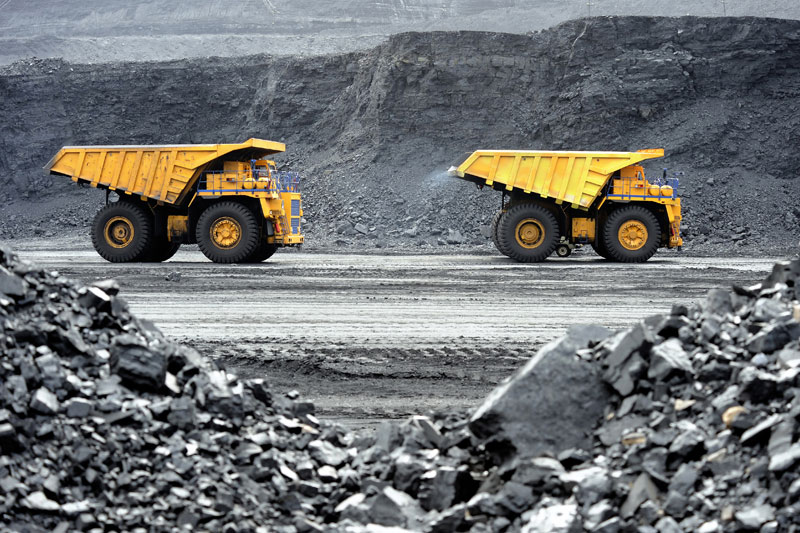(Repeats story published late Friday; no changes to text)
* World's top three coal indices under review
* Spikes in Richard's Bay and Newcastle prices cause concern
* Argus, IHS McCloskey propose changes from Sept. 1
By Sarah McFarlane
LONDON, Aug 14 (Reuters) - The global thermal coal industry is facing the biggest shake up of its pricing benchmarks after Argus and IHS McCloskey, the dominant price providers, proposed changes to their assessments.
The world's top three coal indices, which help inform short and long-term deals struck between coal producers, traders and end-users, are all under review.
Earlier this year, price spikes in South Africa's Richard's Bay and Australia's Newcastle markets caused concern that prices could be higher than fundamentals justified. Traders said at the time there had been some high bids placed at short notice which few sellers could meet.
As the market is not particularly liquid, bids and offers help inform pricing on the indices.
In response to the concerns, consultations have drawn feedback on proposed changes to the API 2 benchmark for northern European coal markets and the API 4 South African coal benchmark, the worlds' first and third largest coal indices.
The indices are calculated using data gathered by Argus and IHS McCloskey.
"Price rises in the Richard's Bay and Newcastle markets this year were at times not reflective of the supply and demand situation in either market, pointing to the potential that prices had been artificially pushed higher," Stefan Ljubisavljevic, analyst at Macquarie Bank said.
The consultations by Argus and IHS McCloskey, which ended last week, proposed narrowing the window for price assessments which provide the basis for the API indexes from around three months to around two months from Sept. 1.
"The proposed methodology change means that the current month does not contribute to index setting. This should reduce the ability of a producer to place unmatchable near-dated bids on screen, which then feeds the index," Ljubisavljevic said.
Both Argus and IHS McCloskey said they were reviewing responses to their proposals.
"We've identified that there could be ways to look at the assessment window and amend the methodology that will help with liquidity, so we have gone down the path of this consultation," said John Howland, senior director of coal at IHS Energy, which owns IHS McCloskey.
"What we're trying to do is concentrate liquidity into those two months."
A spokeswoman for Argus said: "In our discussions with the industry, questions and suggestions had come up around changing the date range specification of some of our coal assessments."
"We are in continual discussion with the market, which from time to time crystallises into a formal proposal for change and is consulted upon. This is one of those instances."
NEWCASTLE COAL
Trading platform globalCOAL is also discussing narrowing the three-month timeframe used for prices on its Newcastle benchmark index with market members, although it has not launched a formal consultation, said Chief Executive Eoghan Cunningham.
"We're keeping it under review and later in the year we'll make an assessment," Cunningham said.
GlobalCOAL's Newcastle benchmark index for thermal coal in the Asia-Pacific is the world's second largest coal index.
Earlier this year globalCOAL made changes to South Africa's Richard's Bay market after complaints about high bids for unusual tonnages. ID:nL3N0YV1UL
The world's top physical coal broker stipulated that bids, offers and trades of physical coal at Richard's Bay will be limited to multiples of 25,000 tonnes, after a jump in the number of buyers looking for non-standard tonnages for RB1 coal.
Some traders said these bids were skewing prices higher, with a knock-on effect on the API 4, which uses globalCOAL to help inform the index.
IHS McCloskey's consultation also proposes to introduce a minimum cargo size of 50,000 tonnes for the Richard's Bay API 4 index and that trades not in 25,000-tonne multiples will by default be excluded, unless they can be validated that they are in market, within the bid/offer range for example, Howland said.
Argus' consultation does not include proposals related to cargo size.
